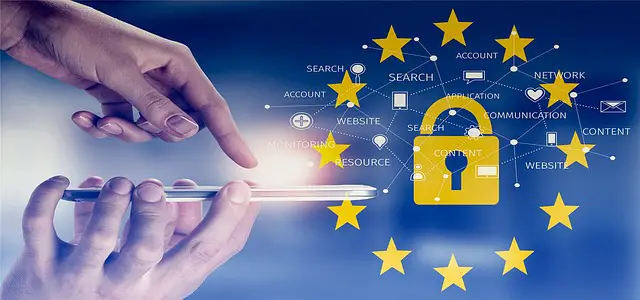
Protecting Your Personal Information in an Interconnected World
The Growing Significance of Data Privacy
In this time of a globalized world with vast amounts of personal information have come to be stored on the internet and transmitted through the web, data privacy has become an unprecedentedly important issue. Every coaction we partake in on the internet, either in social media or doing online shopping, leaves behind a digital footprint, which, if not well protected, may fall in the wrong hands. Data privacy is by no means a purely technical issue; it is a basic human right and, additionally, a trust foundation in our digital society.
Why Data Privacy Matters
With life getting ever so digitized at a rapid speed, the lines between personal and public information are really getting blurred. Data privacy ensures the individuals remain in control of their personal information, protecting them from identity theft, financial fraud, and a whole lot of other cybersecurity-associated threats. Additionally, this facet is important for businesses, governments, and institutions in general, where integrity depends on proper dealings with sensitive data.
What to Expect From this Blog
This blog will dive deep into the complex and dynamic nature of data privacy with insights into its importance, challenges in a digital world, and best practices of protecting personal information. We will dive deep into the types of data needing protection, regulation effects, and real tips on how individuals and businesses can make sure their data is secure.
Understanding Data Privacy

What is Data Privacy?
The Privacy of information refers to strategies and practices that regulate access to personal information by the right individual for the right purpose. It is the process of protecting data from unauthorized access breaches and other types of misuse.
Brief History of Data Privacy
Data privacy as a concept is connected to the early 20th century when the exponential rate of data collection raised fundamental concerns about individual privacy. With the advancement of technology and, subsequently, the creation of very elaborate regimes of data privacy, these same concerns have increased manifold. The chapter introduces a legal background to the situation with regard to data privacy.
Legal Frameworks Surrounding Data Privacy
Along with other countries, data privacy laws differ significantly, but most of the frameworks have a purpose to protect personal data from their abuse. Notable examples are the General Data Protection Regulation under Europe and California Consumer Privacy Act in the US.
Types of Data
Personal Data
Personal data is all the information about the identity of an individual, such as names, address, and social security numbers. The protection of personal data ensures the right of privacy and protects against identity fraud.
Sensitive Data
Sensitive data is the class of information, disclosure of which would lead to great injury to the subject. It will involve financial information, together with medical records and biometric data for which much stronger security is often required.
Public Data
Public data is considered to be information which, by its very nature, is publicly available, such as government records, and information voluntarily disclosed by a person in a public setting. The Public data is less sensitive; however, potential misuse of even this class of data may give rise to some risks.
Data Privacy in the Digital Age
How Technology Impacts Data Privacy
The manner in which information is gathered, stored, and shared has totally changed during the digital era. From social media to the web stores, technology has made collections easier for an outstanding amount of personal data. This raised a lot of questions as to how such data is used.
Common Threats to Data Privacy
A number of entities, including hacking, phishing, and ransomware attacks, actually threaten data privacy. Sometimes these cyber-attacks create ways through which personal information may be accessed, leading to loss and sometimes even identity theft.
The Role of Social Media in Data Privacy
Social media platforms are becoming huge repositories of personal data, and most of the time they share this information with third parties. It is here that users have to make sure about the privacy policies of these social media and take concrete steps to safeguard their information.
Regulatory and Legal Frameworks
GDPR and Its Impact
The General Data Protection Regulation has now defined the high water mark of data privacy across the world; it mandates that organizations must properly secure the personal data of EU citizens and also gives individuals more control over their information.
The CCPA and other State Regulations
The California Consumer Privacy Act is among the most broad-sweeping data privacy laws in the United States. It provides California residents a right to know what personal data are being collected about them and gives them the right to request deletion of their data.
A Global Perspectives on Data Privacy Laws
Data privacy legislations range from overly stringent in some countries to being very lenient in others. It is, therefore, crucial for a company that operates across various regions to appreciate these nuances of operation.
Best Practices for Assurance of Data Privacy
Encryption and Anonymization
The key two methods for protecting data are encryption and anonymization. The former converts data to a format that is not intelligible and retrievable except using a decryption key. The other eliminates personally-identifiable information in databases.
Data Minimization Mechanisms
Data minImization involves collecting the data strictly by the limit that is needed for a particular purpose. The potential damage in case of exposure may be limited by less data collection by organizations.
Strong Passwords and Authentication
Using strong passwords and multi-factor authentication is a common yet good practice when it comes to protecting personal data. Since the mode of enabling operation is almost anything other than prohibiting unauthorized subjects from access to sensitive data, it would be better to have some control on whom and what to do with personally identifiable information.
Business Data Privacy
Data Privacy for Businesses of Prime Importance
To businesses, the importance of data is two-fold. Data privacy is not only an obligation imposed by law but also a trust-building factor with their customers. Business units repose confidence in ensuring data privacy. As it can be vital to their reputation, it can ensure that costly breaches do not occur.
Building Data Privacy Policy
Building a comprehensive data privacy policy means an organization’s statement on how it collects, uses, and safeguards personal data. The policy thus framed should be well-communicated to the employees and customers.
Employee Training and Awareness
Training in data privacy best practices helps prevent any breach. Awareness programs should be conducted on a regular basis to enable employees to identify potential threats and act on them accordingly.
Case Studies on Data Privacy Breaches
High-Profile Data Breaches
There have been the many data breaches of late that have called attention to this issue of data privacy for example the equifax breach which led to the leakage of millions of people’s personal details and the Facebook-Cambridge Analytical scandal.
The Lessons Learned
These breaches bring out the need for effective data privacy measures. An important take-away for organizations would be to learn from these incidents and take steps to attach stronger protections to prevent similar breaches in the future.
Preventive Measures
These are measures, like security audits at regular intervals, training employees, and enforcing strict access controls, that help organizations avoid data breaches and any unauthorized theft of sensitive information.
The Future of Data Privacy
Emerging Trends in Data Privacy
With continuously changing technology, there is also a rise in new challenges and trends in data privacy. These include the increased usage of artificial intelligence and the widespread utilization of biometric data, along with the significant issue regarding data sovereignty.
The Role of AI in Data Privacy
Artificial Intelligence can support and hinder data privacy. While AI will enhance data protection through more effective threat detection, it can also be utilized to exploit vulnerabilities in data systems. Ensuring the ethical and secure use of AI remains key for the future of data privacy.
Future Regulatory Developments
The landscape of regulation around data privacy is ever-changing. Con-comitantly governments are implementing new legislation to tackle emerging challenges in privacy and businesses need to stay ahead of the curve to maintain compliance and ensure their customers data is secure.
Practical Tips for Individuals
Protecting Personal Information Online
The most fundamental actions in securing personal information on the web include having a strong unique password for each account two-factor authentication and exercising caution in the sharing of information on social media.
The Preventing Phishing Scams
Phishing scams are one of the most common methods used by cybercriminals. Users should handle such emails and messages very carefully, verify the sender and ignore any suspicious links that may be used in fraudulent activities.
Using VPNs and Other Privacy Tools
Tools such as VPNs and other privacy-related add-ons help to secure the privacy of personal information by masking IP addresses and encrypting the Internet connection. These notably help in cases of public Wi-Fi, where security is always a bit lax.
Expert Opinions
Quotes from Experts on Data Privacy
“Data privacy is not about compliance; it is about earning the trust of your customers. And in this digital age, there is nothing as valuable as trust.” – Jane Doe, Data Privacy Consultant
Insights from Industry Leaders
Industry players attest that data privacy is already giving competitive advantages that are impossible to ignore. A company that takes data privacy seriously isn’t just protecting itself from the breach but is also gaining a competitive advantage in the marketplace, says John Smith, Chief Executive Officer of TechSecure.
FAQs
What’s the difference between data privacy and data security?
Data privacy concerns the right treatment of personal information regarding a person’s control ability over access to such information, allowing access only to authorized persons. Data security refers to the technical methods implemented to guard the data against unauthorized access, breach, and all kinds of danger.
How Can I Protect My Data When It’s Online?
You can keep your data safe on the web by operating strong passwords, which would be unique for each account, enabling two-factor authentication, conscious posting of information on social media sites, and using some tools that improve privacy, such as VPNs.
Why are data privacy laws so important?
The rationale for data privacy laws is that they shield personal information from misapplication, while the alternative-actual responsible handling of data-is effected through organizational accountability. Aside from organizational accountability, these specific laws grant certain rights to the individual concerning their own data: rights of access, correction, and deletion, among others.
Cybersecurity specialist with a focus on ethical hacking and data protection.

Your article helped me a lot, is there any more related content? Thanks!